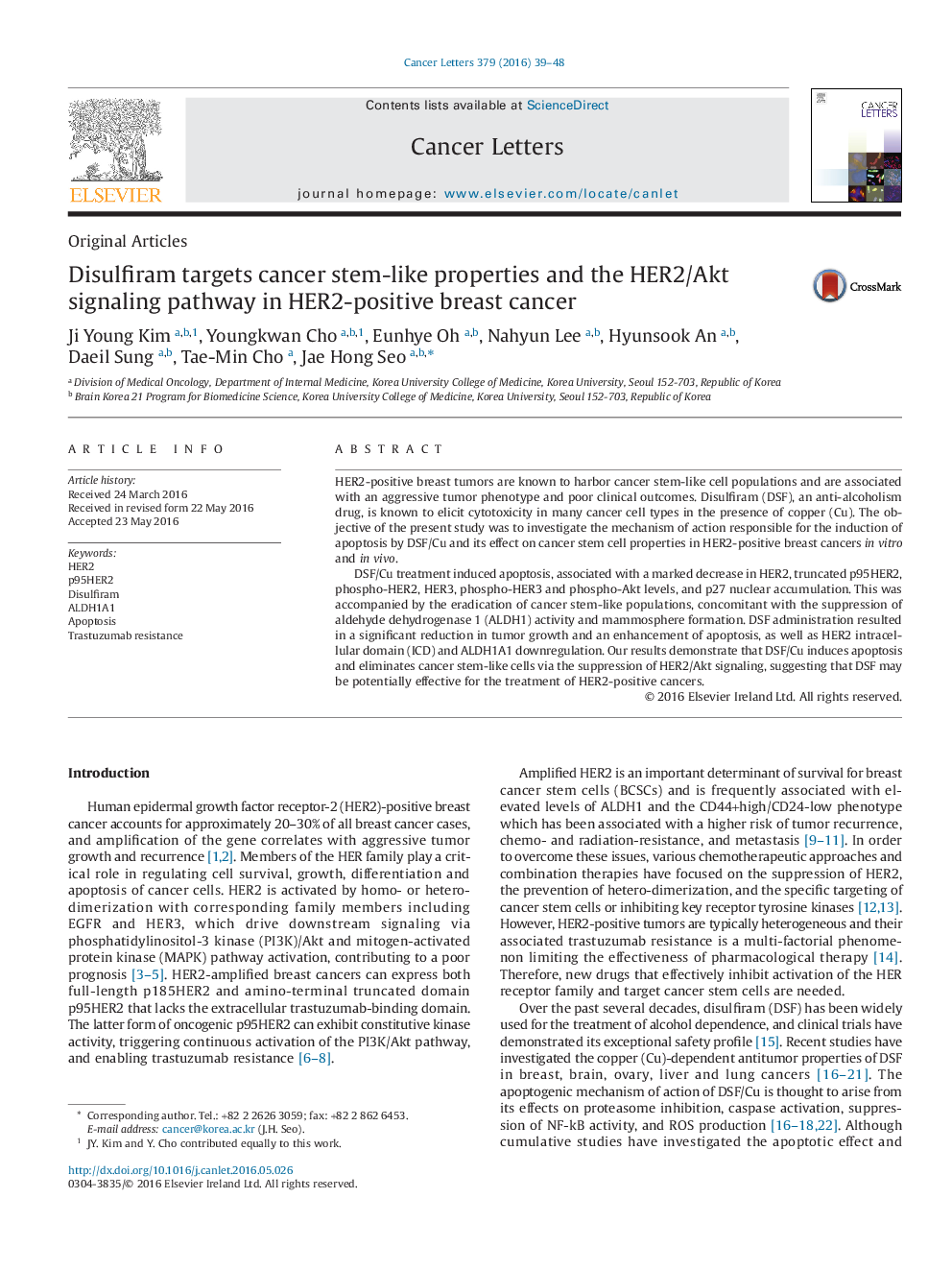| Article ID | Journal | Published Year | Pages | File Type |
|---|---|---|---|---|
| 2116103 | Cancer Letters | 2016 | 10 Pages |
•Disulfiram induces apoptosis in HER2-positive breast cancer cells.•Disulfiram suppresses cancer stem-like properties.•Disulfiram downregulates p185HER2, truncated p95HER2, p-HER2, HER3 and p-HER3.•Disulfiram inhibits tumor growth via downregulation of ICD HER2 and ALDH1A1.
HER2-positive breast tumors are known to harbor cancer stem-like cell populations and are associated with an aggressive tumor phenotype and poor clinical outcomes. Disulfiram (DSF), an anti-alcoholism drug, is known to elicit cytotoxicity in many cancer cell types in the presence of copper (Cu). The objective of the present study was to investigate the mechanism of action responsible for the induction of apoptosis by DSF/Cu and its effect on cancer stem cell properties in HER2-positive breast cancers in vitro and in vivo.DSF/Cu treatment induced apoptosis, associated with a marked decrease in HER2, truncated p95HER2, phospho-HER2, HER3, phospho-HER3 and phospho-Akt levels, and p27 nuclear accumulation. This was accompanied by the eradication of cancer stem-like populations, concomitant with the suppression of aldehyde dehydrogenase 1 (ALDH1) activity and mammosphere formation. DSF administration resulted in a significant reduction in tumor growth and an enhancement of apoptosis, as well as HER2 intracellular domain (ICD) and ALDH1A1 downregulation. Our results demonstrate that DSF/Cu induces apoptosis and eliminates cancer stem-like cells via the suppression of HER2/Akt signaling, suggesting that DSF may be potentially effective for the treatment of HER2-positive cancers.
